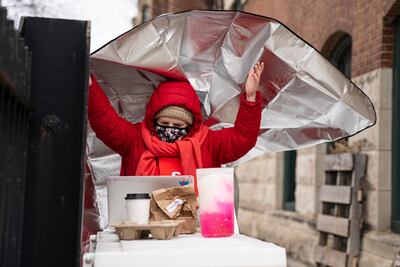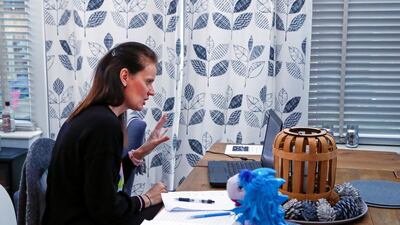“Teaching might even be the greatest of arts, since the medium is the human mind and spirit,” said the writer John Steinbeck. The truth of these lines became abundantly clear in the course of the pandemic.
Teachers have always been heroes. Most people have a story about a favourite teacher, one who changed their lives. Starting from the first lockdown last year, they have became superheroes, supporting young people – our most valuable resource and our investments for the future. Teachers have been doing their jobs at a time when the stakes for the future of young people are higher than ever.
Even as we are yet to emerge on the other side of Covid-19, I wrote to my children’s teachers to thank them for their momentous efforts. They need to know that we value and respect them, and that we recognise their actions go beyond the call of duty. The head teacher replied: “Your note made me cry. We do it because we love the children, but it’s so hard day in day out and everything that happens behind the scenes.”

Like the rest of us, they are not immune to the pandemic strains or the illnesses and loss of loved ones. If schools are places with some of the highest transmission rates, teachers’ physical and mental health are at risk too, not just the children's. I dread the post-traumatic stress that teachers will weigh on teachers, and the long-term effect on them and education at large.
Now add to all this the fact that teachers in some parts of the world been drawn into political battles.
Currently, in the UK, the closure of schools in the face of spiking Covid-19 cases is big news. The UK is back in lockdown, with school premises closed and learning moved completely online. But barely hours before the announcement, views about how schools should continue were mixed.
Prime Minister Boris Johnson said schools are "safe" but added that the mixing of bubbles, as children mingle, is the problem. Teachers' unions said the environment is unsafe for teachers as well as pupils and that adhering to these concerns should be top priority. Parents continue to have mixed feelings about the opening or closing of schools, depending on their individual circumstances and their children’s mental health or special needs.
Those who think the severity of the virus is being overstated, who don't want lockdowns and see restrictions as an affront, want schools to open and teachers to teach. The risk, this section of people believes, is small, while education is critical and must continue. Those who take the view that shutting down can finally get us out of this situation despite the short term pain want schools to close. The concerns of teachers and pupils lie somewhere in this mix.

We know that schooling and education determine life chances to a great extent. Those chances are not being helped when the social equalities in society are widened due to school closures, resulting in the further widening of the deprivation gap. Take the case of laptops that were promised in April last year to disadvantaged schoolchildren in London. In the end, few were seen. Free school meals – usually provided to children most in need – also became a contentious issue with the government.
These and several more instances make clear that schools are about more than just education. They are institutions that address massive social needs like malnutrition and child care. Teachers are responsible for delivering that wider school remit.
The politics of education clearly suggest that schools have that additional function: to function as childcare centres so that parents can work and keep the economy going. There is little slack in the system. Parents already know this – especially working mothers who, even before the pandemic, struggled daily to balance household finances with child care and work. With coronavirus not yet under control, the struggle is on a societal level.
The pandemic has, however, shown that schooling can be done in different ways. And we must reassess the skills that we need to equip children with. Parents, teachers and all members of society need to rethink what children actually need to learn, given that the pandemic will have changed the way societies work.
But we also need to rethink how learning takes place and factor in new techniques because the move to online and blended learning – with its ability to reach new audiences and students who live far away from the city and their schools – is here to stay.
Teachers are at the heart of society. And as our front line into the future, they deserve nothing less than our complete support and appreciation. To draw on Steinbeck’s words, teachers are ensuring that the minds and spirits of children stay strong, resilient and nurtured.
And as we go into the future, schoolchildren will grow up to be at the forefront of change, despite the wounds they continue to acquire in the pandemic. For making today's children capable of facing an unpredictable and rapidly changing future, we owe teachers a great debt.
Shelina Janmohamed is an author and a culture columnist for The National


